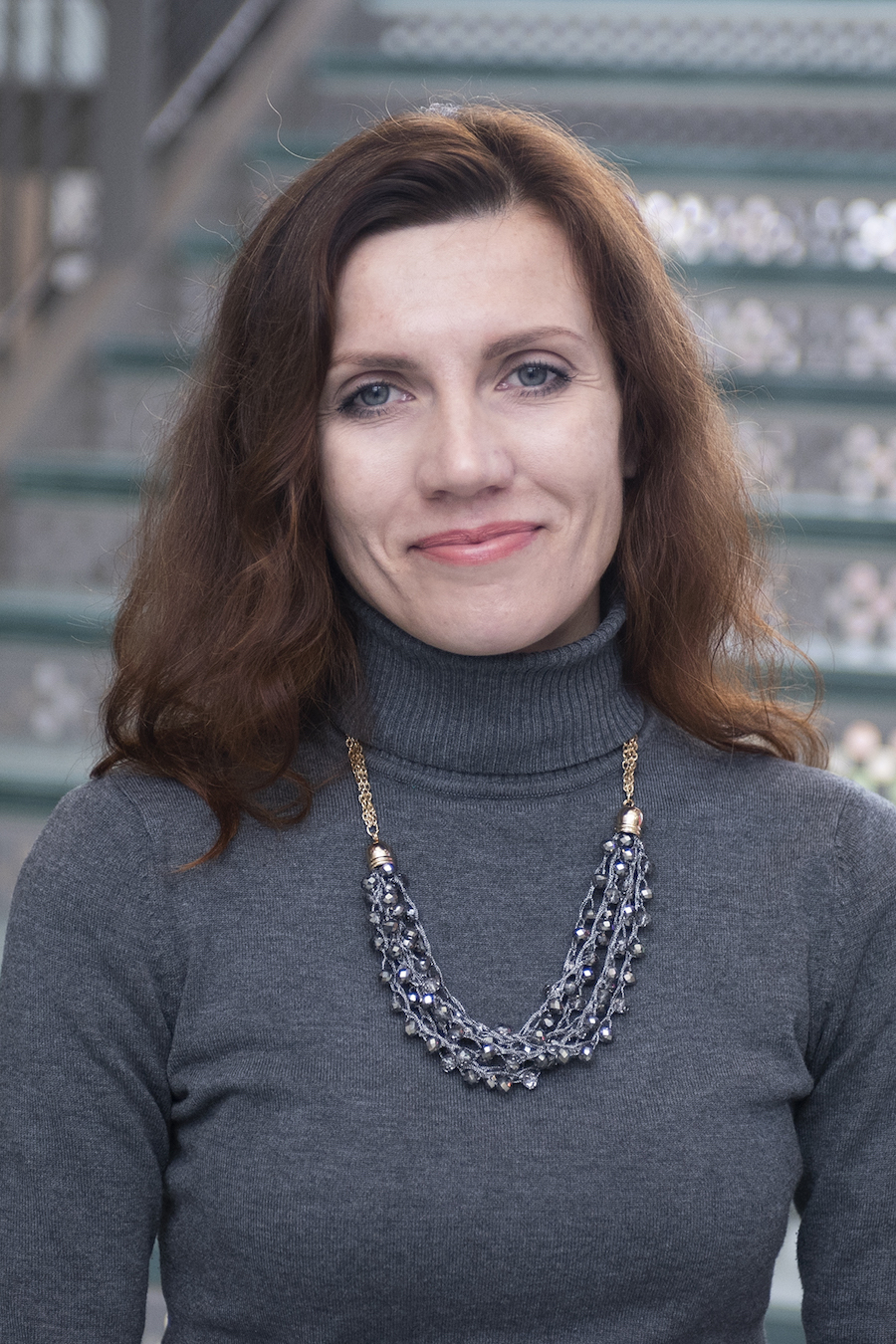Russian Department virtually hosts Nataliya Shpylova-Saeed in first lecture of Russia-Ukraine war series
October 28, 2022
 Courtesy of Nataliya Shpylova-Saeed
Courtesy of Nataliya Shpylova-SaeedUkrainian scholar Nataliya Shpylova-Saeed gave a virtual lecture to the College community yesterday entitled “Russia’s War On Ukraine: Culture, Memory, Politics” in which she explored the history of shifting Russian and Ukrainian identities.
Shpylova-Saaed, a visiting professor in the department of Russian and Eurasian studies at Colgate University, recently gained her Ph.D. in Slavic languages and literatures from Indiana University, where she completed her dissertation on the contested memory of the Ukrainian and Russian nations. She was inspired to begin this research after Russia’s invasion of Crimea in 2014 and has found her research growing increasingly relevant since Russia’s invasion of Ukraine in February, which has provoked international refugee and humanitarian crises.
“There was very little understanding of what Ukraine was back in 2014, and in that moment I decided to invest my future into just bringing awareness and separating conceptions of Ukraine from this umbrella of Russia,” Shpylova-Saeed said.
In her lecture, Shpylova-Saeed noted that Russian President Vladimir Putin has constructed the idea that all Ukrainians hold a nationally Russian identity. She emphasized that Putin’s rhetoric melding Ukrainians and Russians had been present in the years leading up to the invasion in February.
Senior Lecturer in Russian Reed Johnson invited Shpylova-Saeed to present at Bowdoin to connect his course Memory in Contemporary Russian and East European Cinema to the current context of the war.
“As a department, we really wanted to have a Ukrainian voice talk about these issues around collective memory,” Johnson said. “I had originally thought more narrowly in the context of the course that I’m teaching, but then it seemed clear that the larger campus could really benefit from this.”
The talk took place over Zoom after being rescheduled from October 14, when Shpylova-Saeed was on her way to Bowdoin but was stuck in Boston due to a storm. Miguel Pavon ’25 noted that, while he was disappointed not to see Shpylova-Saeed in person, the talk deepened his perspective on the war’s cultural history.
“Honestly, I think it was pretty-eye opening. I’ve heard in the news about certain attacks, but it’s interesting to see how all the different aspects of history and culture and politics play into the reasons why the war is going on,” Pavon said. “It’s important to have the perspective of a Ukrainian scholar because it adds more to the scholarship with that personal aspect … Even on a webinar, this talk was really amazing to join.”
As a native Ukrainian, Shpylova-Saeed shared stories about the impact of bombings and violence on her family, who have been near explosions in the city of Cherkasy in central Ukraine.
“Small cities and towns across Ukraine were targeted and shelled, which goes against Russia’s claims that they were targeting primarily the military infrastructure in the East,” Shpylova-Saeed said. “My family was telling me that they heard explosions as early as the morning of February 24.”
This talk is one of three hosted by the Russian Department this semester on the changing approaches to Russian pedagogy as the war continues. The second talk, on November 17, will feature Linda Kinstler ’13 to discuss recent reporting and her book, “Come to this Court and Cry: How the Holocaust Ends,” about justice and war crimes in Ukraine. Additionally, on December 1, Leon Kogan, a lecturer in the Russian department at Boston College, will speak on rethinking Russian literature and culture in the context of the war. Johnson emphasized the Russian department’s commitment to connecting its coursework to this real-world context.
“Sometimes things happen in the world that … break down the barrier between the rarified air of higher education and these life or death events,” Johnson said. “This is one of those moments which makes us feel very strongly about the importance of talking and teaching about these events so there’s a better understanding of that context, how we got here.”

Comments
Before submitting a comment, please review our comment policy. Some key points from the policy: